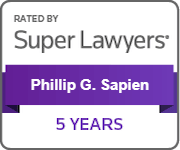The Personal Injury Claim Process
If you are injured in a collision and decide to file a personal injury claim, a rather arduous process is set into motion. This process can be complicated, long, and confusing. However, understanding the basics of the claims process will alleviate some of the stress and worry.
A basic understanding of the claim process fundamentals will provide information on exactly what you are getting into when you pursue a claim. Once you understand these concepts, you will know what to expect next and generally how things will go.
HIRING AN EXPERIENCED AND QUALIFIED PERSONAL INJURY ATTORNEY
One of the primary steps you should take after deciding to pursue a personal injury claim is hiring an experience and qualified personal injury lawyer. Injury victims who go this route generally receive more favorable settlements, experience less stress, and gain an advantage over the insurance companies.
Hiring an attorney is a much simpler process thanks to new technologies that allow us to know exactly whom we are hiring, their qualifications, and how their past clients feel about the services provided by the attorneys and the law firm. You should begin this search by looking for a personal injury attorney in your area who has expertise in your specific type of case or injury.
STATUTE OF LIMITATIONS
All states place a statute of limitations on civil cases. This basically means that after a certain period of time, a case can no longer be brought in front of a court. New Mexico has different limitations depending on the type of personal injury case. For a personal injury case, the limitation is three (3) years from the date of the collision or incident. A claim against a government agency, like a city or county, is limited to two (2) years and requires that you submit a notice of the tort claim within ninety (90) days of the collision or incident. Any case involving a wrongful death is limited to filing a lawsuit within three (3) years of the date of death. A Wrongful Death legal action will require a court approved Personal Representative on behalf of the Estate of the deceased party.
DEFINITION OF A PERSONAL INJURY
The legal definition for a claim is “a demand for money, property, or the enforcement of a right provided by law.” When you are involved in a collision or incident, you file a personal injury claim because you believe that you have a right to monetary compensation because of the liability, fault or responsibility of another person or party. In a personal injury claim, the Plaintiff also known as the injured party seeks financial compensation from the Defendant who is the party who may be liable.
It is generally beneficial to the client to attempt to settle a claim outside of court to avoid the filing fees, costs and emotional stress with having to deal with litigation. If both parties cannot agree on liability or a fair amount of compensation, the case is then presented to a court to decide through a lawsuit. The process of using the court system is referred to as litigation.
The claim process officially begins when the Plaintiff sends a demand letter to the defendant or their insurance company. This letter demands a certain amount of money as compensation for the Plaintiff’s legal damages.
THE DEMAND LETTER
A demand letter lays out the significant issues arising from the claim in an effort either to resolve the case immediately or to present to the other side the arguments and potential legal damages against them.
Demand letters may include:
· The defendant’s claimed liability based on the facts, evidence and circumstances;
· Detailed description of the bodily injuries the plaintiff suffered and may continue to suffer in the future;
· Past, present and future medical treatments costs related to those injuries;
· Lost income from time off work or loss of future earnings capacity because of the injuries;
· Any other non-economic damages, like pain and suffering, loss of enjoyment of life, loss of consortium and loss of household services.
The insurance company will then evaluate the claim and decide whether or not they are willing to meet the demand. Most likely, the insurer will reply with a counteroffer. They may also make a determination that they will not pay any of the claim legal damages. This is called a denied claim and they generally happen for the following reasons:
· The insurance company does not believe their insured is at fault or liable, either because the collision wasn’t their insured’s fault or because the insurance policy doesn’t cover the incident;
· Lack of evidence to support the claims made in the demand;
· Other reasons to believe that the injuries reported were not caused by the incident and instead occurred either before or after the collision.
If the insurance company won’t pay what the injured party thinks is fair and reasonable then the injured party and their attorney may move on to the next step in the process: Filing a Complaint for Personal Injury and Damages.
FILING A COMPLAINT
Filing a Complaint is formal process in which the Plaintiff files a lawsuit through the court system in order to recoup their legal damages. This pleading will be served to the responsible Defendant(s) in order to place them on notice that they are now involved in the legal matter. These documents often list the parties involved, the Plaintiff’s legal claim to compensation, the facts and evidence to support the claim, and the amount of compensation being sought.
THE DISCOVERY PROCESS
Discovery is the formal legal process of collecting and sharing evidence and information of the case. During this phase, the Defendant(s) and the Plaintiff’s attorneys will seek as much information as possible to support or defend the claim. This is often done through interviewing witnesses, requesting medical records and bills, obtaining wage documents, taking deposition of lay and expert witnesses and investigating the incident to prepare for a jury trial.
The parties involved in the incident are also asked to give their official version of events at this time. This is known as a deposition, which is a recorded statement under oath obtained by an attorney for the party with the defense attorney also present at the deposition.
NEGOTIATING A SETTLEMENT
Successfully negotiating a claim settlement will require a compromise between the opposing parties. Most often in the personal injury claim process, this is in the form of the Defendant and their insurance company agreeing to pay some amount of compensation to the injured party(s). This commonly occurs before the case reaches a formal trial. In fact, more than ninety-five percent (95%) of all personal injury claims are settled before they reach a courtroom. This may be accomplished through negotiations over the phone, in writing, during a formal mediation, or through arbitration. Once both sides reach an agreement, the agreement is reflected in writing and the case is resolved. Generally, the injured party will be required to sign a Release or Settlement Agreement with a formal dismissal of the court case as part of the overall settlement of the claim.
TRIAL
For the other five percent (5%) of cases in which a settlement is not reached, the case proceeds to trial. During a trial, the jury will hear from both sides before making a decision about liability and the amount of compensation that may be awarded. Often, trials are avoided by both sides because of the uncertainty of the outcome and the time and resources required to go to trial. It is often easier for both sides to evaluate the case from the others perspective and reach a compromise.
Sapien Law LLC is the experienced and qualified personal injury law firm that you should call and make an appointment for a free case consultation. During the consultation, you and the attorney will discuss your collision, injuries, and possible legal options. Our attorneys will handle your case from start to finish and there is never a fee unless we settle your case. Please call our law firm at (505) 842-5979 or visit www.sapienlaw.com to complete a brief intake form.








